By Paul Théron, MBCI, French Area Representative of the Business Continuity Institute (BCI)
My initial assertion was effectively "I wish to come back to what I suggested in Continuity a few months ago.There is a need to re-think the trade-off between continuity and productivity, between resilience and lean management, between just in time management and globalisation. We built brittle supply chains : it's up to us to foster new ideas to bring more balance between these apparently incompatible views on organisation and management.".
1. " a need to re-think the trade-off between continuity and productivity […] between resilience and lean management " : in the run toward lower costs and higher financial benefits from production, commerce and service trades, organisations, both public and private, have opted for a productivity maximisation policy since the first oil shock in 1973. Management theorists have tried to persuade us that a) a strict selection of strategic business domains and assets would maximise profits gained form core activities while selling non-core assets would help to cash-in extra benefits ; b) cutting costs in each and every process would also enhance financial results ; 3) that business units, people, stocks, suppliers were all potential sources of further gains provided their numbers would lower. This is what gave way to ideologies such as Just-in-time, Lean management, and other beauties of the same kind. If, at the turn of the eighties, Kaplan and Norton brought to managers' attention the over-focus on financial figures as management drivers, the business scorecard did not stop the cost cutting movement. So that, today, we have reached the lowest ever level of unnecessary expenditures across all business and public processes. But this ideological move leads our economies and societies to new extremes. Should one consider the snow storms that affected Europe in December 2010, airports were paralysed by a lack of glycol, making the defreezing of aircraft wings impossible and sticking them to the grounds for days. This is the perfect illustration of the adverse impacts of an intense cost reduction policy. Zero stock means brittleness as soon as events of a magnitude only slightly higher than planned for take place.
2. " a need to re-think the trade-off between continuity and productivity […] between just in time management and globalisation " : a brief look at the consequences of the recent Japanese catastrophe upon global economic processes is huge. In its position as a unique supplier to various technological sectors, Japan has taken on a huge responsibility : to keep going whatever happens, as others cannot conceive of giving-up their business commitments even temporarily. Should I replace Japan in this sentence by any large corporation's name, the underlying logic would remain. The principle of globalised supply chains are not necessarily in contradiction with the principle of just in time supply. Only can we now see fully to what extent supply processes, and beyond production processes and down to customer services, have become dependent on upstream remote suppliers. The risk equation appears desperately simple, and I dare say this with the naiveté that any human being affected by a lack of water of the late delivery of his brand new car may show. Distance increases hazards. Political and social unrest increases hazards. Concentration of productions or stocks increases hazards. Uniqueness of suppliers and exclusive rights over production or distribution processes increases hazards. The risk map released at the recent Davos summit highlights these concerns and now we may say that one cannot say one was not aware of the dangers and risks at jand.
So, yes, " We built brittle supply chains " and it is up to us to " foster new ideas to bring more balance between these apparently incompatible views on organisation and management ".
In my short article in Business Continuity, last year, I suggested four streams of progress :
"A fourfold change of mind is required."
First, top managers must make business continuity a requirement in the design of the Supply-to-Customer Chain. Lean management, cheap relocations, indifference to country risks, reliance upon a hard-to-control cascade of subcontractors, will not provide the right equation to Board and Shareholders’ satisfaction at the end of the day.
Secondly, a better understanding of organisations’ and systems’ interdependencies with their supply chain and geo-political environment is needed. When your branch managers may get shot dead or your local warehouse burnt to the ground only because local competitors are ruthless, you face interruption risks as severe as when the Grid shuts down because trees have grown unnoticed under a 400KV line. And should we mention cyber threats ?…
Third, renegotiating SLA’s with your suppliers and your own branches may be tough. Most organisations do business based on binding contractual relations the application of which has often become loose and degraded by bad habits and trade-offs that no one questions and that remain invisible to the top management.
Fourth, international standardisation in relation to organisational resilience, the supply chain, security, or else PPP’s,must be kept under control and serve firms’ business purposes and states’ national security concerns."
I believe that these recommendations still hold firm against the odds of the past months.
One thing that strikes me, or should I say all the things that strike me at present, are :
- managers are not taught properly of business continuity
- they are told only that productivity is their main concern
- sustainability is ranked very low on the scale of their preoccupations, their including everyone from Board level down to intermediate / proximity management
- vast struggles are being held at the moment at ISO to win the game over the future organisational resilience or business continuity standard, the US against the UK, in a pathetic manner and based on conceptual premises that are too weak to bring anything to the wide business community
- continuity, to mention only this domain of business process performance, is never "engineered" into new processes, or only in a fashion close to what dependability engineering already does, though the now extreme likeliness of unlikely combinations of adverse events and vulnerabilities calls for the new engineering, organisation and management methods needed to fightback when extreme circumstances strike.
Altogether, there is a need for a new science of organisations and systems that would take as its primary object the notion of resilience. I am not going to go into the details of what one should understand by the word resilience as I am afraid I might become to talkative now. But my previous research works show that current methods and doctrines are not in line with the specificities of the concept of resilience.
As long as these concepts are not well understood, no progress will be achieved by our fellow human beings. Resilience is the oldest, and propably most deeply rooted aptitude of living creatures on this planet. But the least studied.
One - highly optimistic, and as such, unrealistic maybe - outcome of such a study could be a radical shift in our philosophy of life. One is resilient as far as one does not expose oneself to far overwhelming circumstances, too adverse to be kept under control, or at least to be kept afar. Our current commitments to the most dangerous technologies like the nuclear industry (yes it is most dangerous, even if engineers make their best efforts at the small human scale) could have been acceptable in an idle world, empty of sources of danger, human, technological or natural. But, unfortunately, we live in the real world, which is complex and populated with manifold objects and creatures all eager or made to act upon their environment. In combination, these things and creatures become terrifying in the face of vulnerable humans, weak by nature, incapable to hold together, unwilling to think forward, beyond the immediate limits of short term profits.
Technology has masked reality from our consciousness. Young people now walk on streets without anymore awareness of their environment and of other people, technicians supervise complex industrial and agricultural installations without knowing anymore what the things they pilot look like, car drivers and aircraft pilots now get a virtual vision of their surrounding realities…
Reciprocal interdependencies between our critical infrastructures (and between our businesses) also make us more brittle. And now, what used to be a corporate (at best) preoccupation, namely business continuity, becomes a supra-corporate, even trans-national one. Public policies on critical infrastructure protection in Europe for instance advocate cross-border governance processes and view emergency preparation as a global activity. You will find at http://ec.europa.eu/information_society/policy/nis/strategy/prep_study/index_en.htm a report I delivered to the European Commission last year about the telecommunication sector.
Examples can be multiplied. And I will stop here.
How far shall we go before we crash is the question here.
A radical shift of mindset is urgently required.
It should start in the small to reach the larger scales of public consciousness one day, some time in a remote future…
●This article was translated into Japanese and published on magazine "Risk-taisaku.com" vol.25.
◆Profile
Paul Théron, MBCI, French Area Representative of the Business Continuity Institute (BCI) since 2002, has been carrying out consulting and academic research in relation to economic and societal Resilience for the past 30 years.
He advocates a change in the current Business Continuity Management & Planning doctrines, placing a larger emphasis on the shift in the commandment paradigm that extreme circumstances require, from procedure-based response plans to tactical reasoning and the building of resilience capabilities.
He teaches post-graduates Business Continuity Management as a regular invited lecturer in France at the Poitiers Faculty of Science (IRIAF), at the Aix-Marseille Faculty’s Institute of Corporate Management (IAE), and many others.
He is also the author of a large number of publications and conferences on these topics.
You can reach him on his email at patheron@wanadoo.fr.



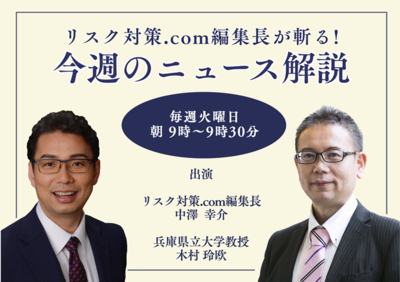
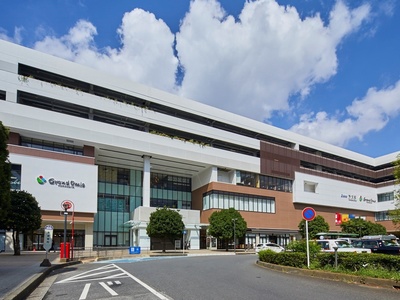

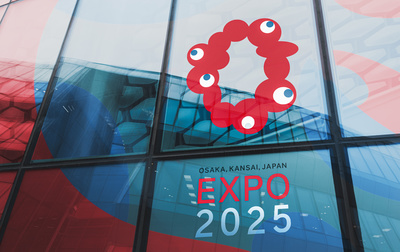
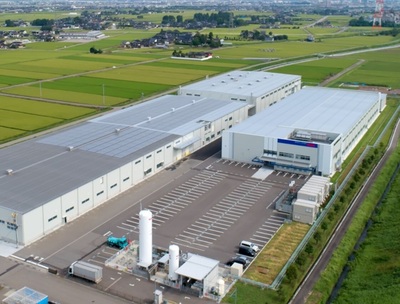

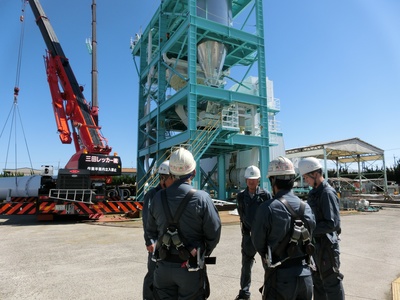













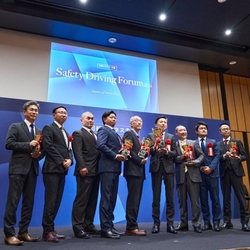
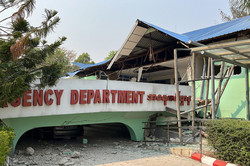


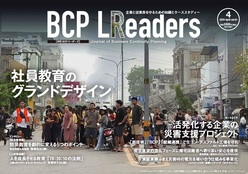


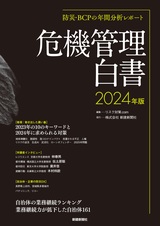
![2022年下半期リスクマネジメント・BCP事例集[永久保存版]](https://risk.ismcdn.jp/mwimgs/8/2/160wm/img_8265ba4dd7d348cb1445778f13da5c6a149038.png)
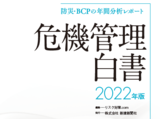



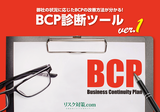

※スパム投稿防止のためコメントは編集部の承認制となっておりますが、いただいたコメントは原則、すべて掲載いたします。
※個人情報は入力しないようご注意ください。
» パスワードをお忘れの方